Impuestos Verdes: propósitos, beneficios y limitaciones
Green Taxes: purposes, benefits and limitations
Contenido principal del artículo
Resumen
Este estudio aborda los impuestos verdes, destacando su papel como herramientas económicas para fomentar prácticas sostenibles y mitigar el cambio climático. Se demuestra que estos impuestos pueden incrementar la conciencia ambiental e inducir cambios significativos en los patrones de consumo y producción, alentando tanto a consumidores como a empresas a optar por alternativas más sostenibles. Además, se resalta la capacidad de los impuestos verdes para generar ingresos adicionales, los cuales pueden ser destinados a financiar proyectos de sostenibilidad y tecnologías limpias. Sin embargo, se identifican desafíos clave, como la resistencia de ciertos sectores económicos, el riesgo de fugas de carbono, y los impactos en los precios al consumidor y la competitividad internacional. Este análisis subraya la importancia de un diseño cuidadoso de los impuestos verdes para maximizar sus beneficios ambientales y económicos, minimizando efectos adversos. Se concluye que, aunque los impuestos verdes son herramientas valiosas para promover la sostenibilidad, su éxito depende de un equilibrio entre eficacia ambiental, justicia social, innovación tecnológica y cooperación internacional.
Descargas
Detalles del artículo
Referencias (VER)
Adedoyin, F., Alola, A., y Bekun, F. (2020). An assessment of environmental sustainability corridor: The role of economic expansion and research and development in EU countries. Science of the total environment, 713, 136726. https://doi.org/https://doi.org/10.1016/j.scitotenv.2020.136726
Antón, A. (2020). Taxing crude oil: A financing alternative to mitigate climate change? Energy Policy,, 136, , 111031. https://doi.org/https://doi.org/10.1016/j.enpol.2019.111031
Anwar, N., Mahmood, N., Yusliza, M., y Khalid, W. (2020). Green Human Resource Management for organisational citizenship behaviour towards the environment and environmental performance on a university campus. Journal of Cleaner Production. , 256, 120401. https://doi.org/ https://doi.org/10.1016/j.jclepro.2020.120401
Bonoli, A., Zanni, S., y Serrano-Bernardo, F. . (2021). Sustainability in Building and Construction within the Framework of Circular Cities and European New Green Deal. The Contribution of Concrete Recycling. Sustainability, 3(4), 2139. https://doi.org/https://doi.org/10.3390/SU13042139
Cadoret, I., Galli, E., y Padovano, F. (2020). How do governments actually use environmental taxes? Applied Economics, 52, 5263 - 5281. https://doi.org/https://doi.org/10.1080/00036846.2020.1761536.
Casasempere-Satorres, A., y Vercher-Ferrándiz, M. (2020). Bibliographic documentary analysis. Getting the most out of the literature review in qualitative research. New Trends in Qualitative Research, 4, 247-257. https://doi.org/10.36367/ntqr.4.2020.247-257
Chaves-Cano, A., Sánchez-Castillo, V., Pérez-Gamboa, A., y Gonzalez-Argote, J. (2024). Internet of Things and Health: A literature review based on Mixed Method. EAI Endorsed Transactions on Internet of Things, 10. https://doi.org/10.4108/eetiot.4909
Chen, Y., y Ma, Y. (2021). Does green investment improve energy firm performance? Energy Policy, 153, 112252. https://doi.org/https://doi.org/10.1016/J.ENPOL.2021.112252
Chien, F., Ananzeh, M., y Ngo, T. (2021). The effects of green growth, environmental-related tax, and eco-innovation towards carbon neutrality target in the US economy. Journal of environmental management, 299, 113633. https://doi.org/https://doi.org/10.1016/j.jenvman.2021.113633
Debortoli, D., y Brignole, N. (2024). Inteligencia empresarial para estimular el giro comercial en el microcentro de una ciudad de tamaño intermedio. Región Científica, 3(1), 2024195. https://doi.org/10.58763/rc2024195
Ding, Q., Khattak, S., y Ahmad, M. (2020). Towards sustainable production and consumption: Assessing the impact of energy productivity and eco-innovation on consumption-based carbon dioxide emissions (CCO2) in G-7 nations. Sustainable Production and Consumption. , 27, 254-268. https://doi.org/https://doi.org/10.1016/j.spc.2020.11.004
Gómez, C. (2022). Ingreso, permanencia y estrategias para el fomento de los Semilleros de Investigación en una IES de Colombia. Región Científica, 1(1), 20226. https://rc.cienciasas.org/index.php/rc/article/view/6
González, D., Garzón, D., y Sánchez, V. (2023). Cierre de las empresas del sector turismo en el municipio de Leticia: una caracterización de los factores implicados. Región Científica, 2(1), 202342. https://doi.org/10.58763/rc202342
González, R. (2023). La transversalidad del medioambiente: facetas y conceptos teóricos. Región Científica, 2(2), 202393. https://doi.org/10.58763/rc202393
Grover, C., y Bansal, S. (2021). Effect of green network and emission tax on consumer choice under discrete continuous framework. Environmental Economics and Policy Studies, 23, 641 - 666. https://doi.org/ https://doi.org/10.1007/s10018-021-00312-y
Guatemala, A., y Martínez-Prats, G. (2023). Capacidades tecnológicas en empresas sociales emergentes: una ruta de impacto social. Región Científica, 2(2), 2023111. https://doi.org/10.58763/rc2023111
Guo, B., Wang, Y., Feng, Y.,... y Hu, F. (2022). The effects of environmental tax reform on urban air pollution: A quasi-natural experiment based on the Environmental Protection Tax Law. Frontiers in Public Health, 10. https://doi.org/https://doi.org/10.3389/fpubh.2022.967524
Guzmán, D., Gómez, C., y Sánchez, V. (2022). Construcción del Estado a partir de la participación Ciudadana. Revista Academia & Derecho, 14(25). https://revistas.unilibre.edu.co/index.php/academia/article/view/10601
Hao, L., Umar, M., Khan, Z., y Ali, W. (2020). Green growth and low carbon emission in G7 countries: How critical the network of environmental taxes, renewable energy and human capital is? The Science of the total environment, 752, 141853. https://doi.org/https://doi.org/10.1016/j.scitotenv.2020.141853
Hemanand, D., Mishra, N., Premalatha, G., … y Sahile, K. . (2022). Applications of Intelligent Model to Analyze the Green Finance for Environmental Development in the Context of Artificial Intelligence. Computational Intelligence and Neuroscience, 2022. https://doi.org/https://doi.org/10.1155/2022/2977824
Jin, Y., Gao, X., y Wang, M. (2021). The financing efficiency of listed energy conservation and environmental protection firms: Evidence and implications for green finance in China. Energy Policy, 153, 112254. https://doi.org/https://doi.org/10.1016/J.ENPOL.2021.112254
Kammerer, M, y Murgas, B. (2024). La innovación tecnológica desde un enfoque de dinámica de sistemas. Región Científica, 3(1), 2024217. https://doi.org/10.58763/rc2024217
Kang, S., y Lee, S. (2021). Impacts of Environmental Policies on Global Green Trade. Sustainability. , 13(3), 1517. https://doi.org/https://doi.org/10.3390/SU13031517
Karmaker, S., Hosan, S., Chapman, A., y Saha, B. (2021). The role of environmental taxes on technological innovation. . Energy, 232(121052). https://doi.org/ https://doi.org/10.1016/J.ENERGY.2021.121052
Khan, I., Zakari, A., Zhang, J., Dagar, V., y Singh, S. (2022). A study of trilemma energy balance, clean energy transitions, and economic expansion in the midst of environmental sustainability: New insights from three-trilemma leadership. Energy, 248, 123619. https://doi.org/https://doi.org/10.1016/j.energy.2022.123619
Loayza, E. (2020). La investigación cualitativa en Ciencias Humanas y Educación. Criterios para elaborar artículos científicos. EDUCARE ET COMUNICARE Revista de investigación de la Facultad de Humanidades, 8(2), 56-66. https://doi.org/10.35383/educare.v8i2.536
Machuca-Contreras, F., Canova-Barrios, C., y Castro, M. (2023). Una aproximación a los conceptos de innovación radical, incremental y disruptiva en las organizaciones. Región Científica, 2(1), 202324. https://doi.org/10.58763/rc202324
Mogrovejo Andrade, J. M. (2022). Estrategias resilientes y mecanismos de las organizaciones para mitigar los efectos ocasionados por la pandemia a nivel internacional. Región Científica, 1(1), 202211. https://doi.org/10.58763/rc202211
Moreira, A., y Reis, R. (2024). La inserción de los movimientos sociales en la protección del medio ambiente: cuerpos y aprendizajes en el Recôncavo da Bahia. Región Científica, 3(1), 2024208. https://doi.org/10.58763/rc2024208
Mwita, K. (2022). Strengths and weaknesses of qualitative research in social science studies. Related Topics in Social Science, 11(6). https://doi.org/10.20525/ijrbs.v11i6.1920
Ogunkunle, O., y Ahmed, N. (2021). Overview of Biodiesel Combustion in Mitigating the Adverse Impacts of Engine Emissions on the Sustainable Human–Environment Scenario. Sustainability. 13(10). https://doi.org/ https://doi.org/10.3390/SU13105465
Panda, T., Kumar, A., Jakhar, S.,… y Nayak, S. (2020). Social and environmental sustainability model on consumers’ altruism, green purchase intention, green brand loyalty and evangelism. Journal of Cleaner Production, 243(118575). https://doi.org/https://doi.org/10.1016/j.jclepro.2019.118575
Pérez, N., y Arufe, A. (2023). Perspectivas de transición energética en América Latina en el escenario pospandémico. Región Científica, 2(1), 202334. https://doi.org/10.58763/rc202334
Prada, J. (2023). Modelo de Deterioro de los Instrumentos Financieros. Región Científica, 2(1), 202317-202317. https://rc.cienciasas.org/index.php/rc/article/view/17
Rodríguez-Torres, E., Gómez-Cano, C., y Sánchez-Castillo, V. (2024). Application of gamification in work environment. Gamification and Augmented Reality, 2(24). https://doi.org/10.56294/gr202424
Rodríguez, E., Pérez, A., y Camejo, Y. (2023). Formación del liderazgo distribuido en los estudiantes de la carrera Gestión Sociocultural para el Desarrollo. Atenas, 61. https://pf.umcc.cu/index.php/atenas/article/view/778
Rustam, A., Wang, Y., y Zameer, H. (2020). Environmental awareness, firm sustainability exposure and green consumption behaviors. Journal of Cleaner production, 268, 122016. https://doi.org/ https://doi.org/10.1016/j.jclepro.2020.122016
Sanabria, M. (2022). Construir nuevos espacios sostenibles respetando la diversidad cultural desde el nivel local. Región Científica, 1(2), 20222. https://doi.org/10.58763/rc20222
Sánchez, Y., Pérez, A., Hernández, A., .. y Rodríguez, E. (2023). Hospital culture and social responsibility: a mixed study of the main lines for its development. Salud. Ciencia Y Tecnología-Serie De Conferencias, 2, 451. https://doi.org/https://doi.org/10.56294/sctconf2023451
Shabbir, M., Sulaiman, M., Al-Kumaim, N., Mahmood, A., y Abbas, M. (2020). Green Marketing Approaches and Their Impact on Consumer Behavior towards the Environment. A Study from the UAE. Sustainability, 12(21), 8977. https://doi.org/https://doi.org/10.3390/su12218977
Shafique, M., Azam, A., Rafiq, M., y Luo, X. (2021). Evaluación del ciclo de vida de los vehículos eléctricos y los vehículos de motor de combustión interna: Estudio de caso de Hong Kong. Research in Transportation Economics. , 91, 101112. https://doi.org/https://doi.org/10.1016/J.RETREC.2021.101112
Shen, B., Zhu, C., Li, Q., y Wang, X. (2020). Green technology adoption in textiles and apparel supply chains with environmental taxes. International Journal of Production Research, 59, 4157-4174. https://doi.org/ https://doi.org/10.1080/00207543.2020.1758354
Shen, Y., y Zhang, X. (2022). Study on the Impact of Environmental Tax on Industrial Green Transformation. . International Journal of Environmental Research and Public Health, 19(24). https://doi.org/https://doi.org/10.3390/ijerph192416749
Siddaway, A., Wood, A., y Hedges, L. (2019). How to Do a Systematic Review: A Best Practice Guide for Conducting and Reporting Narrative Reviews, Meta-Analyses, and Meta-Syntheses. Annu Rev Psychol, 70, 747-770. https://doi.org/10.1146/annurev-psych-010418-102803
Snyder, H. (2019). Literature review as a research methodology: An overview and guidelines. Journal of Business Research, 104, 333-339. https://doi.org/https://doi.org/10.1016/j.jbusres.2019.07.039
Sohn, Y., Kim, H., Baritugo, K., … y Park, S. (2020). Recent Advances in Sustainable Plastic Upcycling and Biopolymers. Biotechnology journal, 19(4). https://doi.org/https://doi.org/10.1002/biot.201900489.
Song, M., Wang, S., y Zhang, H. (2020). Could environmental regulation and R&D tax incentives affect green product innovation? Journal of Cleaner production, 258, 120849. https://doi.org/ https://doi.org/10.1016/j.jclepro.2020.120849
Taghizadeh‐Hesary, F., y Yoshino, N. (2020). Sustainable Solutions for Green Financing and Investment in Renewable Energy Projects. Energies, 13(4), 788. https://doi.org/https://doi.org/10.3390/en13040788
Tápanes, E., Bosch, O., Sánchez, Y., Marqués, M., y Santos, O. (2023). Sistema de indicadores para el control de la sostenibilidad de los centros históricos asociada al transporte. Región Científica, 2(1), 202352. https://doi.org/10.58763/rc202352
Töbelmann, D., y Wendler, T. (2020). The impact of environmental innovation on carbon dioxide emissions. Journal of Cleaner production, 244, 118787. https://doi.org/https://doi.org/10.1016/j.jclepro.2019.118787
Valencia-Celis, A. U., Patiño, G. R., y Sánchez-Castillo, V. (2023). Environmental Knowledge Management Proposals in Education Systems. Bibliotecas. Anales de investigación, 19(2). https://doi.org/https://dialnet.unirioja.es/servlet/articulo?codigo=9027955
Vázquez, V., y Martínez, G. (2023). El desarrollo regional y su impacto en la sociedad mexicana. Región Científica, 2(1), 202336. https://doi.org/10.58763/rc202336
Wang, Y., y Yu, L. (2021). Can the current environmental tax rate promote green technology innovation? - Evidence from China’s resource-based industries. Journal of Cleaner production, 278, 123443. https://doi.org/ https://doi.org/10.1016/j.jclepro.2020.123443
Yamazaki, A. (2020). Environmental taxes and productivity: Lessons from Canadian manufacturing. Journal of Public Economics. https://doi.org/https://doi.org/10.24545/00001727
Yue, B., Sheng, G., She, S., y Xu, J. (2020). Impact of Consumer Environmental Responsibility on Green Consumption Behavior in China: The Role of Environmental Concern and Price Sensitivity. Sustainability, 12 (5), 2074. https://doi.org/ https://doi.org/10.3390/su12052074.
Zapata, F., Montoya, S., y Montoya-Zapata, D. (2024). Dilemas éticos planteados por el auge de la inteligencia artificial: una mirada desde el transhumanismo. Región Científica, 3(1), 2024225. https://doi.org/10.58763/rc2024225








